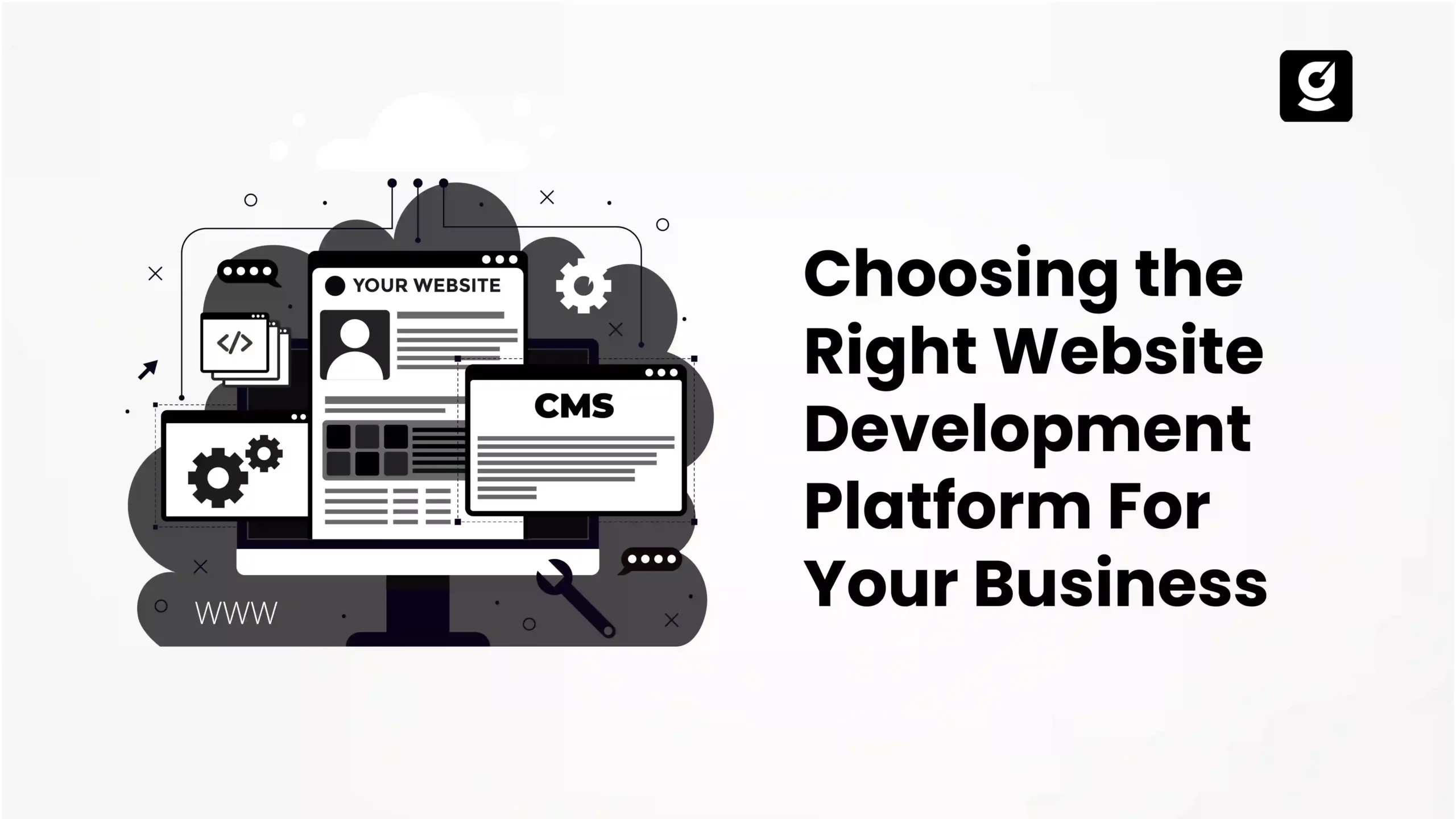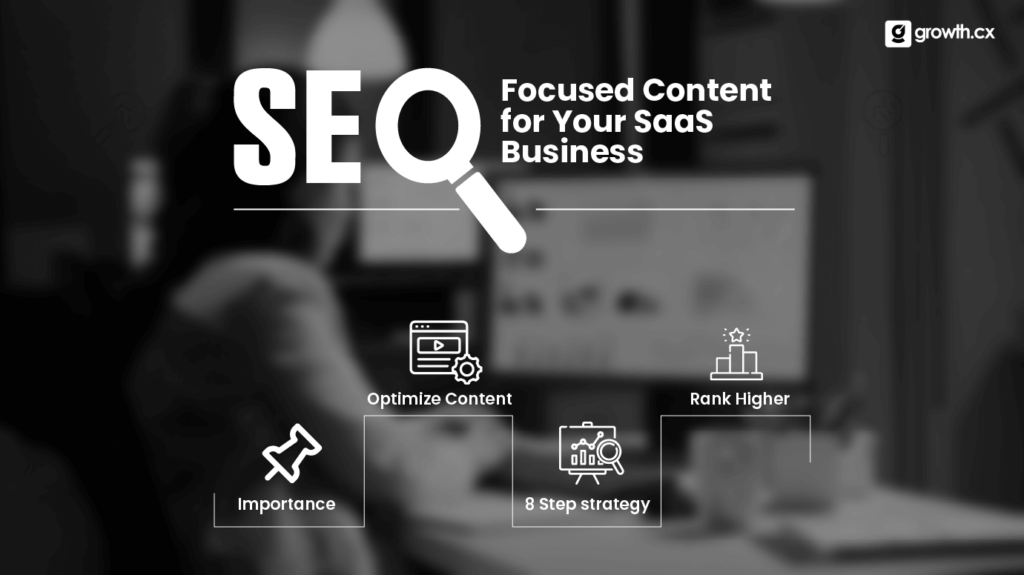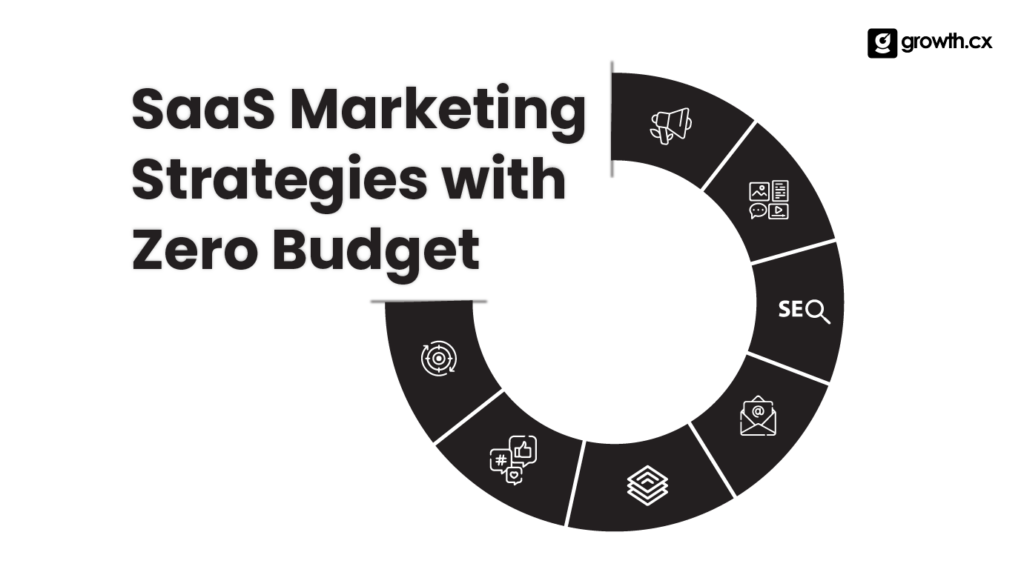We believe that selecting the appropriate web development platform is important for ensuring the business’s success. The platform serves as a main framework for your online persona and has a profound influence on your business productivity.
In fact, there are many such web development platforms available today, and all provide different features for different website requirements. From simple drag-and-drop website builders to personalized CMS and feature-rich e-stores, there are a lot of them out there to confuse.
The list of best website development platforms will be explained in this blog, along with the pros and cons. Also, as a bonus point, you will get to know the best website development platform in 2024.
What Is A Website Development Platform?
A website development platform is a software application that provides the tools and features to build and maintain a website. These can range from simple, user-friendly interfaces suitable for all types of developers. There are also platforms like highly customizable environments that are designed for experienced developers. The primary function of these website development platforms is to streamline the process of creating and managing websites, making them accessible to a wide range of users.
There are many types of website development platforms, and each caters to different needs:
- Content Management Systems
A CMS – Content Management System is a software application that helps users create, manage,, and modify content on a site without any specialized knowledge. This is highly flexible and supports many plugins and themes. You can use this for blogs, websites, and ecommerce sites.
Examples: WordPress, Joomla, drupal
- Website Builder
These are typically tools that provide a drag-and-drop interface. These website builders are very easy to use and publish websites without writing any code. It has benefits like quick setup, user-friendliness, and all-in-one solutions. It is ideal for small businesses and personal websites and can be used in portfolios.
Examples: Wix, Squarespace, Weebly
- Ecommerce Platforms
Ecommerce platforms are designed to create online stores and manage ecommerce activities like product listings, shopping carts,, and payment settings. These platforms have advantages, such as being tailored for selling products online, secure transactions,s, and integration with various payment gateways.
Examples: Shopify, woo-commerce, big commerce
Which Web Development Platform Is Best?
The main thing to consider when building a website is choosing the right platform. Many website development platforms offer features that suit your business website.
Here, we will discuss some of the most popular website development platforms and their pros and cons to help you select one for your business.
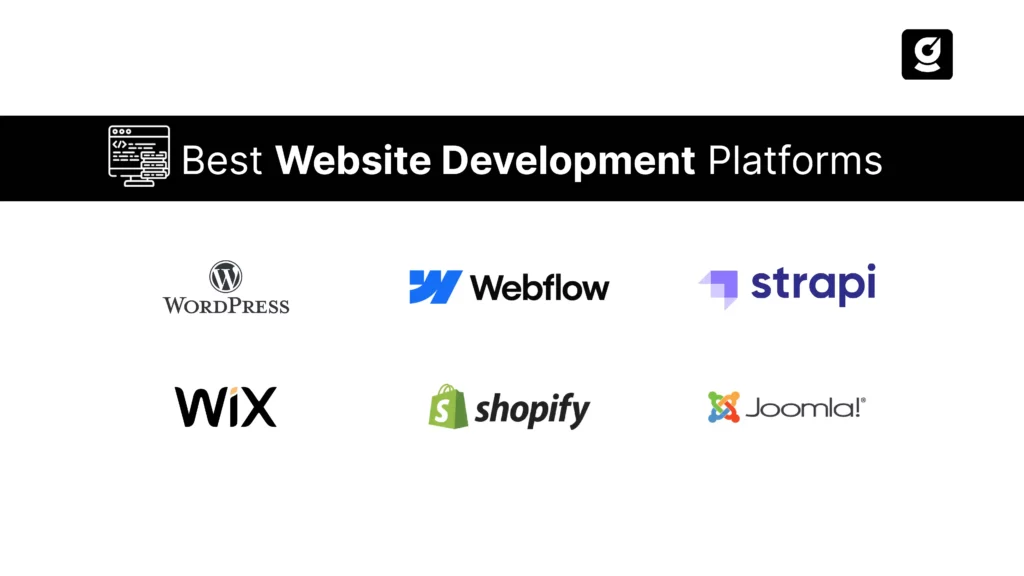
1. WordPress
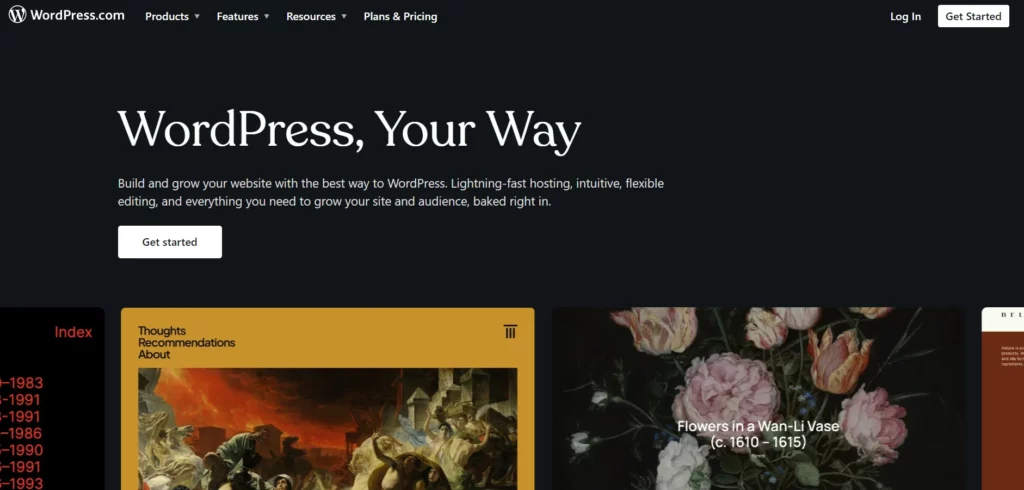
WordPress is popular as it is considered to be one of the main CMMs in the world of web development. It was introduced in 2003, and by the later years, it had become a common CMS that helped over 40% of all websites on the internet. This system is highly customizable and can be used to build a simple blog or a complex business site with facilities such as selling various products. The platform is open source, is updated regularly, and has access to the developers who take part in its changes.
Pros:
- This CMS is highly customizable with many plugins and proper themes
- Strong community support and extensive documentation.
- WordPress is suitable for blogs, websites for businesses, and e-commerce platforms.
- You can build websites that are SEO-friendly with various built-in features and plugins.
Cons:
- It can be complex for beginners without technical knowledge.
- Have regular updates and maintenance for security and performance.
- Performance can be slow without proper optimization.
2. Webflow
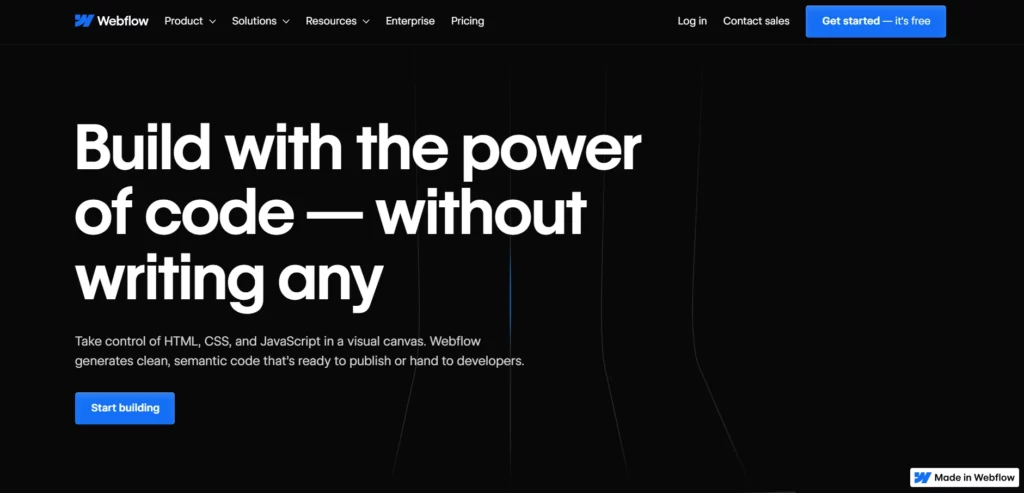
Webflow is a CMS and a visual web design tool that enables designers to design and create websites and other projects that were developed in 2013. It provides, in addition to straightforward website development based on the drag-and-drop feature, a full-featured CMS at the same time. Webflow aims at designers and developers who want to have full control over the site and its design and performance but do not wish to write code. It also provides a hosting service that makes it a one-stop shop for many businesses, especially those who do not have IT support.
Pros:
- Have a drag-and-drop interface with a focus on website design.
- Designers or developers don’t need to write code that offers the flexibility to add custom code.
- Built-in hosting with CDN, SSL, and performance optimization.
- Great for designers who want complete control over the design process.
Cons:
- Difficult for those not familiar with design principles.
- Higher cost compared to some other platforms.
- Webflow has limited e-commerce capabilities compared to other platforms.
3. Strapi
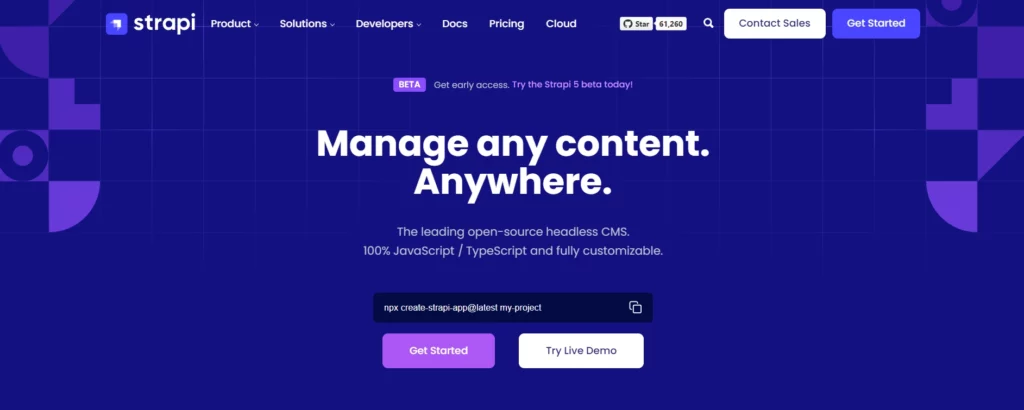
Strapi is a CMS platform that uses the javascript framework Node JS. It has an open-source license, and the admin panel and API can be fully customized. Developers learned it, and it became fashionable because of the flexibility and convenience of the tool. This makes it ideal, especially when building applications that require high speed to satisfy the growing market and that can be customized very much depending on the developer’s design. It also means that strapi is an open-source software that enjoys growing support from the community and frequent updates.
Pros:
- Completely customizable and extensible with plugins.
- Supports RESTful and GraphQL APIs for flexible content delivery.
- Active community and regular updates.
Cons:
- Requires technical knowledge to install, configure, and manage.
- It can be overkill for small or simple websites.
- It lacks a visual content editor, making it less user-friendly for non-developers.
4. Wix

Wix is an online platform for creating websites via a web application that began in 2006. It is concerned with the notion of democratizing the process of Website development to the point where anyone can pursue it without having to consider technicalities. At the moment, Wix offers different templates and options for designing the site. It gives its users the ability to build corporate-like quality websites within a short time and without any hassle. It also includes a hosting and domain service that allows individuals and businesses with small websites to have easy solutions.
Pros:
- Extremely user-friendly with no coding required.
- Wide range of templates and design customization options.
- Integrated hosting, domain registration, and maintenance.
- Suitable for small businesses, personal websites, and portfolios.
Cons:
- Limited flexibility and scalability for larger projects.
- Customization options are more restricted compared to CMS platforms.
- SEO capabilities are not as strong as those of other platforms like WordPress.
5. Shopify

Shopify is one of the leading e-commerce solutions that allow businesses to develop websites to sell products online. The CMS is built in June 2006 by Richard Liu Qiangdong. It has grown to the extent of being the leading solution for most business executing e-commerce businesses to sell their products online. Shopify has built-in tools, such as inventory and order management, payment processing, and shipping services. The tool’s layout is simple and allows users to organize their stores with advanced features.
Pros:
- Shopify has e-commerce features that help you build a perfect ecommerce website.
- It also has a user-friendly interface and an extensive app marketplace.
- Secure and reliable with built-in SSL and PCI compliance.
- Excellent customer support and resources.
Cons:
- Monthly fees can be higher, especially with additional apps and themes.
- Limited customization options compared to open-source platforms.
- Transaction fees unless using Shopify Payments.
6. Joomla
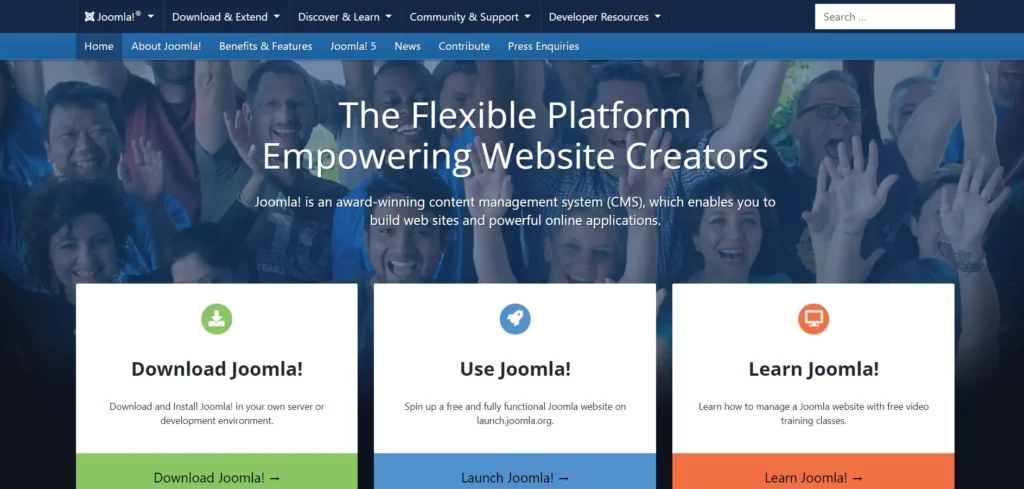
Joomla has been relatively new in the market since it was founded in 2005. It is a versatile CMS that aims at flexibility and simplicity while preserving the extensibility of the web application. The CMS is especially useful for websites that involve complicated data flow and complex authorization systems. It is suitable for use on social platforms and related sites, forums, and other membership sites. Due to the following features, this platform is highly flexible and manageable, using numerous extensions and templates.
Pros:
- Powerful and versatile with many extensions and templates.
- Strong community support and extensive documentation.
- Good for complex websites requiring robust user management and content structuring.
Cons:
- Compared to other CMS platforms, this platform has to learn more
- Requires regular updates and maintenance.
- Smaller market share, leading to fewer plugins and themes.
Bonus Tip: Hire A Website Development Service
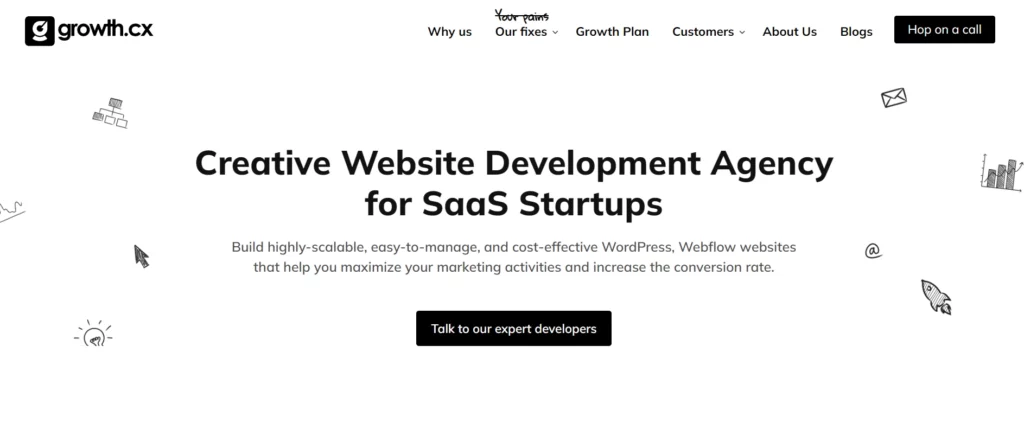
At growth.cx, the team specializes in creating highly scalable, easy-to-manage websites designed specifically for SaaS startups. The agency’s expertise has enabled it to successfully scale over 50 B2B SaaS startups globally, delivering the perfect solution for each business.
Why Choose Growth.cx?
- Expertise in Multiple CMSs: The team has extensive experience across various content management systems, ensuring flexibility and tailored solutions.
- Quick Turnaround Time: An efficient development process ensures your website is up and running swiftly.
- Specialized in B2B and SaaS: growth.cx understands the unique needs of B2B SaaS companies and crafts websites that meet those requirements perfectly.
- Free Premium Suitejar Account: Also get a complimentary premium Suitejar account to enhance all digital marketing efforts.
At growth.cx, they have a dedicated team of designers and developers is committed to delivering the perfect website for your business.
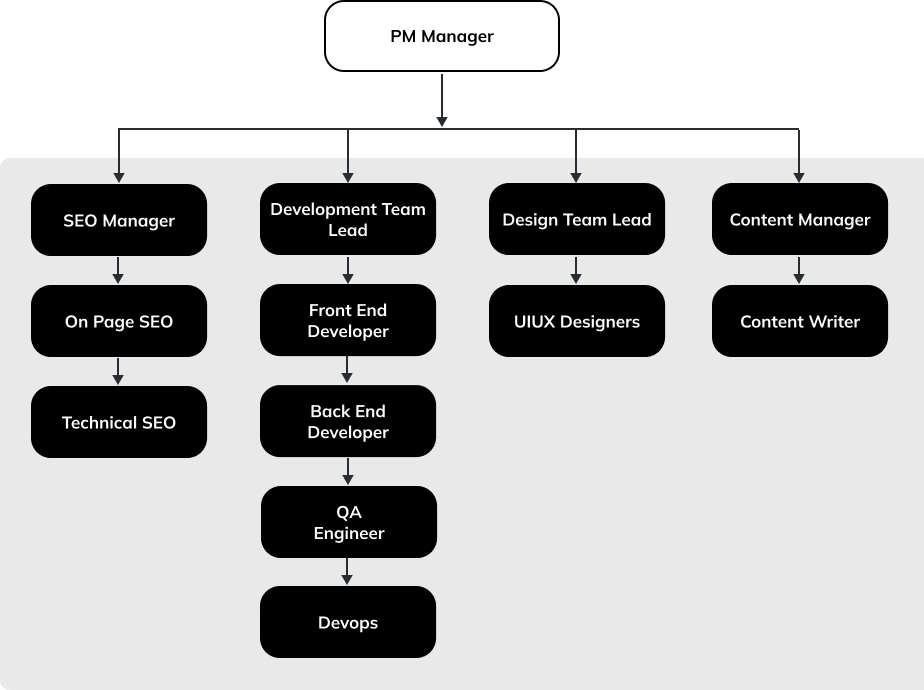
When you partner with them, you gain access to a comprehensive suite of services, all in one place. The agency has a team that includes UI/UX experts, website developers, SEO analysts, and content marketers, ensuring every aspect of your website is expertly handled.
The expertise of the growth.cx website development service lies in the following:
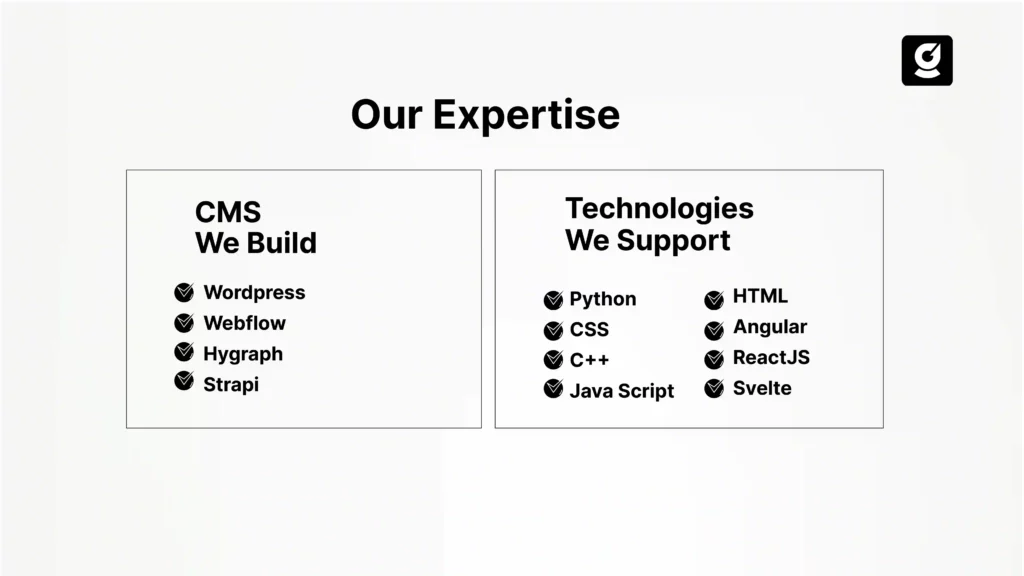
growth.cx has extensive experience in the B2B, SaaS, and startup industries. They build tailored websites that align with clients’ goals and budgets, offering affordable and flexible options. By partnering with growth.cx, you ensure a website is not only visually appealing but also highly functional and optimized for success.
Conclusion
So here you are familiar with the best website development platforms that you can use in your business. You can go through all their features and select one that suits your requirements. Hiring a website development agency is another apt thing that you can take when you want to get work done professionally.
